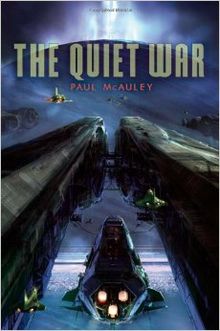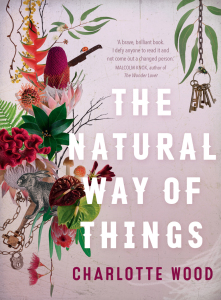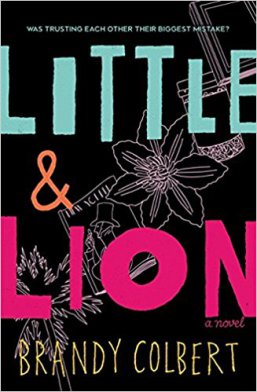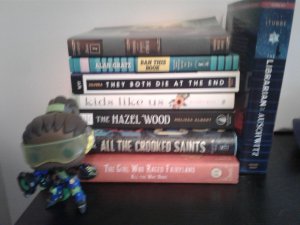
The Quiet War is an impressive and clever book. The author convincingly places technological advances in a brilliantly described landscapes in the solar system. It is an able, though not very cheerful, contributor to the theme of ‘what will humans do next after wrecking the earth’ scenario.
McAuley begins with the premise that vacuum and hostile planetary environments have been made liveable via the use of huge domed cities, survival suits and go-anywhere transport, robotics and, of course, gene-spicing. This technology has spawned a series of colonies, Others, which are pursuing a variety of social and scientific constructs. They are in conflict with Earth, still run by elites, and there was a reference to scarifying Mars of all the newly established life in a war which that branch of the Others patently lost.
The way of managing conflicting interests, violently, is a given in this novel. But the power struggle between the Earth and Others is represented through the contrasting characters of Macy Minnot and Sri Hong-Owen and it is they who ensure the success of this novel. Sri Hong-Owen, brilliant scientist and practitioner of power games at the faithless executive level is fascinating. Executive manipulations create a reluctant but effective revolutionary in the sympathetic character of Macy. Her development under stress is convincing. (Wasn’t that the attraction and power of Katniss Everdeen in Hunger Games?) The petty selfish pursuits of a variety of other individuals make depressing but entertaining reading.
My one caveat, given the strides in technological advances, is how little Earth has been mended during the same time that Jupiter’s moons have been colonised. Throughout the novel we are asked to consider the morality of the actions of the characters, particularly the scientists; Sri Hong-Owen. (Compare her with Caroline Caldwell, in The Girl With All the Gifts by M.R. Carey)
Advertisements Share this:





